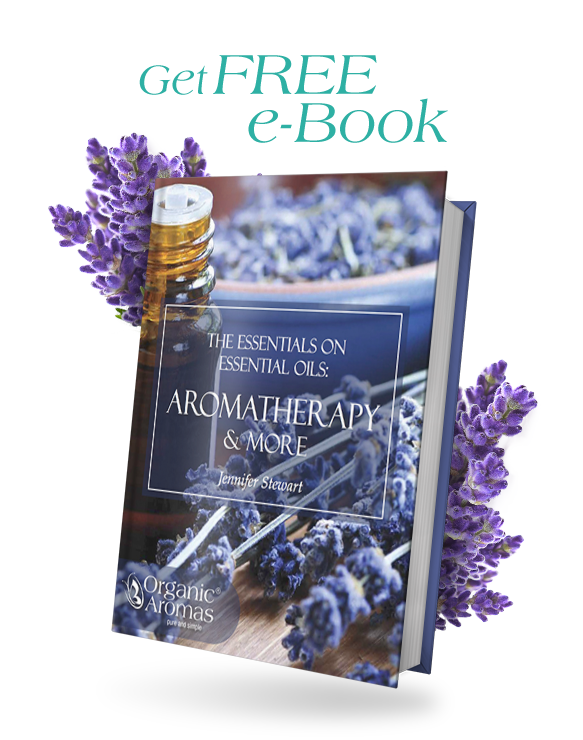8 Best Essential Oils for Vertigo Relief
Struggling with vertigo and feeling like the world is spinning out of control? You’re not alone, and relief might be closer than you think. Imagine being able to alleviate those dizzying spells and regain your balance naturally.
Essential oils, nature’s own remedy, offer a promising solution to vertigo symptoms. This article reveals the top essential oils for vertigo, how they work, and the best ways to use them. Dive in to discover how these potent oils can help you find your footing and bring stability back into your life.
Natural Remedies to Regain Balance and Stop Dizziness
- Vertigo is often associated with inner ear issues and can lead to symptoms like dizziness, nausea, and anxiety.
- Essential oils such as peppermint, ginger, and lavender can effectively alleviate vertigo symptoms through inhalation or topical application.
- Using a nebulizing diffuser daily can help combat and prevent vertigo by maintaining a consistent therapeutic environment.
- It’s important to use essential oils properly, dilute them with carrier oils, and consult a healthcare professional to avoid adverse reactions.
Understanding Vertigo and Its Symptoms

Vertigo is a sensation of spinning or dizziness, often linked to problems within the inner ear. Conditions like labyrinthitis and vestibular neuritis, which involve inner ear inflammation, are common culprits. Effective diagnosis is key to treating vertigo symptoms, which can have multiple causes.
Many vertigo sufferers undergo multiple tests to find a suitable vertigo treatment plan.
Common Vertigo Symptoms
Vertigo symptoms can vary widely but often include severe dizziness, nausea, headaches, confusion, and hearing impairment. Conditions like benign paroxysmal positional vertigo can cause these symptoms, making daily activities challenging.
Essential oils like peppermint and ginger oil are known to ease nausea and dizziness, providing vertigo relief for many sufferers.
Major Triggers for Vertigo Episodes
Major triggers for vertigo episodes often include inner ear problems, reduced blood flow, and heightened anxiety levels. Inner ear disturbances can provoke vertigo, while reduced blood flow can lead to dizziness.
Anxiety is another significant factor that can trigger vertigo episodes, making it essential to manage stress and anxiety to reduce vertigo occurrences.
Top Essential Oils for Vertigo Relief

Essential oils have gained popularity for their ability to alleviate vertigo symptoms naturally. They can be used in various forms, such as essential oil blends, to offer relief from nausea, dizziness, and other vertigo symptoms.
These essential oils can help alleviate vertigo symptoms. Consider trying these options.
Peppermint Oil
Peppermint oil is widely known for its anti-nausea properties, making it an effective essential oil for vertigo. The active compound menthol in peppermint stimulates cold-sensitive receptors in the skin, which can have a calming effect and may reduce feelings of motion sickness.
Its antispasmodic and digestive benefits further enhance its ability to relieve nausea and dizziness.
Ginger Oil
Ginger oil is another powerful essential oil for vertigo relief. It can be inhaled or ingested to improve vertigo symptoms, particularly nausea and dizziness. Known for its soothing properties, ginger oil can be used through diffusers or incorporated into food and drinks to provide relief.
Lemon Oil
Lemon oil helps with dizziness and nausea, making it a suitable choice for vertigo sufferers. When diffused, lemon oil can effectively counteract feelings of dizziness. Its refreshing scent and therapeutic properties make it a popular choice for those seeking vertigo relief.
Thyme Oil
Thyme oil has great medicinal properties that may assist in treating various ailments, including vertigo. When diffused or consumed as tea, thyme oil can provide holistic relief from dizziness and other vertigo symptoms.
Lavender Oil
Lavender essential oil is known for its calming properties. Its aroma promotes relaxation and reduces anxiety, aiding in managing anxiety-related vertigo symptoms.
Inhalation or topical application of lavender oil can help achieve these calming effects.

Join Now and Get a Coupon for 10% Off!
Rose Oil
Rose oil promotes relaxation by soothing anxiety through its interaction with the central nervous system. It can be added to bathwater or used in a diffuser to alleviate vertigo symptoms.
Rose oil is also effective in helping to prevent peripheral symptoms of vertigo.
Eucalyptus Oil
Eucalyptus oil is widely recognized for its therapeutic properties, particularly in respiratory health. It can help open nasal passages, making breathing easier and reducing congestion.
The calming effects of eucalyptus oil also help ease tension, making it beneficial for managing vertigo.
Helichrysum (Helichrysum italicum)
Helichrysum is known for its grounding properties and is effective in calming the nervous system, reducing stress, and promoting balance. It is highly regarded in aromatherapy for its calming and balancing effects, making it suitable for conditions like vertigo.
Essential Oils for Vertigo: Potential Benefits, Key Constituents, and Supporting Research
| Essential Oil | Effects | Organic Chemical Constituents | Reference |
|---|---|---|---|
| Lavender (Lavandula angustifolia) | Lavender oil has been shown to reduce anxiety and stress in clinical trials, which could be beneficial for individuals with vertigo, as anxiety can often exacerbate symptoms. Its calming properties have been noted in both human and animal studies. | Linalool, Linalyl acetate | Sousa et al., 20151 |
| Citrus Aurantium (Bitter Orange) | Bitter orange essential oil has demonstrated anxiolytic effects in both animal models and some clinical studies, which may provide relief to those experiencing vertigo. Its calming properties can reduce symptoms like dizziness and nausea, commonly associated with vertigo. | Limonene, Linalool | Sousa et al., 20152 |
| Peppermint (Mentha piperita) | Peppermint oil, known for its anti-nausea properties, may help in managing the nausea and dizziness that often accompany vertigo. Though not specifically studied for vertigo, peppermint oil is widely used for motion sickness and other forms of nausea. | Menthol, Menthyl acetate | Tate, 19973 |
| Ginger (Zingiber officinale) | Ginger oil or extract has shown some effectiveness in treating nausea, which could benefit vertigo sufferers. While primarily studied for motion sickness, it could have similar effects in managing nausea caused by vertigo. | Gingerol, Zingiberene | Chaiyakunapruk et al., 20064 |
How to Use Essential Oils for Vertigo

Various methods can be used to utilize essential oils, such as inhalation, topical application, and blending. Each method provides unique benefits tailored to individual preferences.
Inhalation Methods
A diffuser disperses essential oils throughout a room, making it effective for sustained inhalation. This method can fill a room with beneficial particles, offering therapeutic effects while resting or sleeping.
Steam inhalation, where essential oils are added to hot water and the steam is inhaled, can provide rapid relief from vertigo symptoms.
The Benefits of Using a Nebulizing Diffuser
A nebulizing diffuser is particularly effective for inhaling essential oils, offering a pure and potent delivery method. Unlike traditional diffusers that use water or heat, nebulizing diffusers use pressurized air to break the essential oils into a fine mist. This method ensures that the essential oils remain in their purest form, without dilution or alteration, providing the maximum therapeutic benefits.
The fine mist created by a nebulizing diffuser allows for rapid absorption of the essential oils into the bloodstream through the respiratory system. This can lead to quicker and more effective relief from vertigo symptoms such as dizziness, nausea, and anxiety. Additionally, the pure, undiluted essential oils dispersed by a nebulizing diffuser can help maintain a consistent therapeutic environment, promoting overall well-being.
Nebulizing diffusers are also known for their ability to preserve the integrity of the essential oils’ chemical composition, ensuring that the positive effects are delivered in their most potent form. This can enhance the therapeutic properties of the oils, making them more effective in managing vertigo symptoms.

Sign Up to Get Your FREE
e-Book Here…
Moreover, nebulizing diffusers are often designed to be quiet and efficient, making them suitable for use in various settings, including homes, offices, and wellness centers. Their ability to provide a continuous and concentrated stream of essential oils can create a calming and healing atmosphere, further aiding in the relief of vertigo symptoms.
Topical Application
Topical application involves mixing essential oils with a carrier oil and massaging the mixture into pressure points like the forehead, neck, and temples. This method targets areas where tension accumulates, enhancing relaxation and symptom relief.
Creating Essential Oil Blends
Blending essential oils with complementary properties can enhance their effectiveness. Common carrier oils like jojoba, sweet almond, and virgin coconut oil ensure safe application of the essential oil blend.

Important Considerations When Using Essential Oils
While essential oils offer numerous benefits, it is important to use them with caution. Essential oils should be diluted with a carrier oil before applying to the skin to avoid irritation. They are highly concentrated and can cause severe reactions if ingested or used improperly.
Potential Side Effects
Common side effects of using essential oils include:
- headaches
- skin irritation
- nausea
- throat swelling
- rapid heartbeat
- vomiting
It is advisable to conduct a patch test when applying essential oils to ensure no adverse reactions occur.
Always mix essential oils with a carrier oil when applying to the skin to help prevent irritation.
Consulting a Medical Professional
Consulting a medical professional before using essential oils ensures safety and avoids adverse reactions. Discussing their use with a healthcare provider ensures compatibility with existing treatments and health conditions.
Healthcare providers can offer personalized advice regarding the safe use of essential oils based on individual health conditions.
Additional Natural Remedies for Vertigo

In addition to essential oils, there are other natural remedies that can help alleviate vertigo symptoms. These remedies can complement the use of essential oils and provide additional relief.
Chiropractic Care
Upper cervical chiropractic care focuses on addressing spinal misalignments that can lead to vertigo symptoms. Techniques used in upper cervical chiropractic care precisely correct misalignments in the neck, providing significant relief for vertigo sufferers.
Herbal Teas
Herbal teas can serve as a natural remedy for alleviating vertigo symptoms. Ginger tea is particularly noted for its ability to reduce nausea, making it beneficial for vertigo sufferers.
Thyme tea, known for its medicinal properties, can also treat vertigo symptoms effectively.

Sign Up to Get Your FREE Essential Oils e-Book Here
Lifestyle Adjustments
Staying hydrated is crucial, as dehydration can exacerbate dizziness and related symptoms. Avoiding major triggers such as stress and sudden movements can help prevent vertigo episodes. Limiting caffeine and alcohol intake may also reduce the likelihood of triggering vertigo symptoms.
Managing anxiety levels is vital, as anxiety can act as a significant trigger for vertigo.
Daily Use of Nebulizing Diffusers Can Reduce or Prevent Vertigo Symptoms
Implementing the daily use of a nebulizing diffuser is the best way to get the positive, therapeutic effects of essential oils. Furthermore, the nebulizing diffusers by Organic Aromas are equipped with new Bluetooth technology, allowing you to pair your diffuser with your smartphone so that you can apply the necessary aromas when and where you wish conveniently and with precision.
Using a nebulizing diffuser can be critical for creating an environment that is robust and positive. Managing your environment so it is constantly filled with soothing aroma is a game changer for essential oils for vertigo.
Key Conclusions for Using Essential Oils to Combat Vertigo
In summary, essential oils offer a natural and effective way to manage vertigo symptoms. From peppermint and ginger to lavender and eucalyptus, these oils can provide relief from nausea, dizziness, and anxiety. Combining essential oils with other natural remedies like chiropractic care, herbal teas, and lifestyle adjustments, including comprehensive use of an aromatherapy diffuser can further enhance vertigo relief and improve overall well-being.
Exploring the world of essential oils and natural remedies can open new doors to managing vertigo symptoms. With careful use and consideration, you can find the right combination that works best for you, bringing balance and comfort back into your life.

Join Our Exclusive Member Club to get Big Discounts!
Frequently Asked Questions
Can essential oils completely cure vertigo?
Essential oils can help ease vertigo symptoms, but they won’t completely cure the root cause. It’s best to talk to a healthcare professional for a thorough treatment plan.
How should I apply essential oils for vertigo?
Applying essential oils for vertigo can be effective through inhalation with a diffuser or by diluting them with a carrier oil for topical use. Choose the method that feels most comfortable for you!
Are there any side effects of using essential oils for vertigo?
Yes, using essential oils for vertigo can lead to side effects like headaches, skin irritation, and nausea. It’s a good idea to do a patch test and consult a healthcare provider before trying them out.
Can pregnant women use essential oils for vertigo relief?
Absolutely, it’s important for pregnant women to talk to a healthcare provider before using essential oils for vertigo relief to ensure safety and avoid any risks. Your health and that of your baby come first!
What are some other natural remedies for vertigo?
Chiropractic care, herbal teas, and making some lifestyle adjustments can really help manage vertigo symptoms. Give them a try for some relief!
- Sousa, D., Hocayen, P., Andrade, L., & Andreatini, R., 2015. A Systematic Review of the Anxiolytic-Like Effects of Essential Oils in Animal Models. Molecules, 20, pp. 18620 – 18660.
- Sousa, D., Hocayen, P., Andrade, L., & Andreatini, R., 2015. A Systematic Review of the Anxiolytic-Like Effects of Essential Oils in Animal Models. Molecules, 20, pp. 18620 – 18660.
- Tate, S., 1997. Peppermint oil: a treatment for postoperative nausea.. Journal of advanced nursing, 26 3, pp. 543-9 .
- Chaiyakunapruk, N., Kitikannakorn, N., Nathisuwan, S., Leeprakobboon, K., & Leelasettagool, C., 2006. The efficacy of ginger for the prevention of postoperative nausea and vomiting: a meta-analysis.. American journal of obstetrics and gynecology, 194 1, pp. 95-9 .








Thankfully I’ve never had vertigo but if I ever get it I’ll know which oils will help.